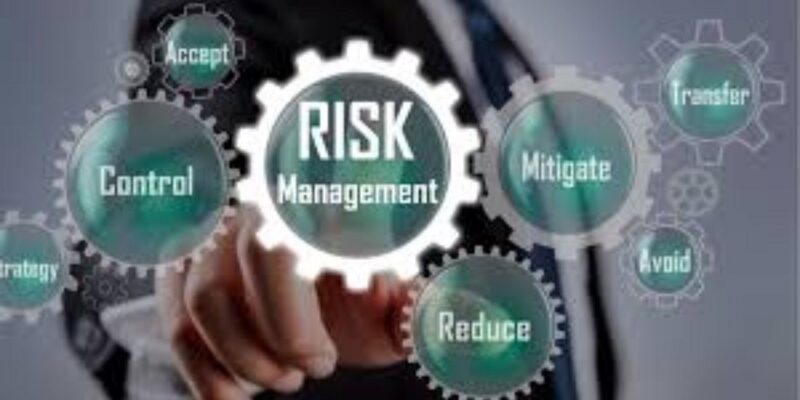In today’s complex and rapidly changing business environment, organizations face a myriad of risks that can impact their operations, reputation, and bottom line. This is where risk management consultants play a crucial role, helping businesses identify, assess, and mitigate potential threats while maximizing opportunities. This article will explore what risk management consultants do, their relationship with risk advisory services, and provide insights into aspects of their work that are often overlooked.
What are Risk Management Consultants?
Risk management consultants are professionals who specialize in helping organizations identify, evaluate, and manage potential risks that could affect their business objectives. These experts bring a wealth of knowledge and experience in various industries and risk domains, allowing them to provide tailored solutions to their clients’ unique risk profiles.
Risk management consultants typically have backgrounds in fields such as finance, insurance, law, or specific industries relevant to their clients. They often hold certifications such as Certified Risk Manager (CRM), Financial Risk Manager (FRM), or Professional Risk Manager (PRM), demonstrating their expertise in the field.
What Do Risk Management Consultants Do?
The role of risk management consultants is multifaceted and encompasses a wide range of activities:
- Risk Identification: Consultants work with organizations to identify potential risks across various areas, including financial, operational, strategic, and compliance risks.
- Risk Assessment: Once risks are identified, consultants help quantify and prioritize them based on their potential impact and likelihood of occurrence.
- Risk Mitigation Strategies: Consultants develop and recommend strategies to mitigate identified risks, which may include risk transfer, risk reduction, or risk acceptance approaches.
- Risk Monitoring: They help establish systems and processes for ongoing risk monitoring and reporting.
- Crisis Management Planning: Consultants assist in developing crisis management and business continuity plans to handle unexpected events.
- Risk Culture Development: They work with organizations to foster a risk-aware culture throughout all levels of the company.
- Compliance and Regulatory Guidance: Consultants provide advice on regulatory requirements and help ensure compliance with relevant laws and standards.
- Technology Implementation: They may recommend and assist in implementing risk management software and tools.
- Training and Education: Consultants often conduct training sessions for employees to enhance risk awareness and management skills.
- Board and Executive Advisory: They provide strategic risk insights to boards and executive teams to inform decision-making.
Does Risk Advisory Cover Part of Risk Management Consultants’ Services?
Risk advisory is often considered a subset of the broader field of risk management consulting. While there is significant overlap between the two, risk advisory typically focuses more on providing strategic guidance and recommendations, whereas risk management consulting may also include more hands-on implementation and ongoing management of risk processes.
Risk advisory services often encompass:
- Strategic Risk Assessment: Evaluating risks that could impact an organization’s long-term goals and objectives.
- Governance and Compliance: Advising on risk governance structures and compliance with regulations.
- Financial Risk Management: Providing guidance on managing financial risks, including market, credit, and liquidity risks.
- Operational Risk Advisory: Offering insights on managing risks in day-to-day operations.
- Cybersecurity and Technology Risk: Advising on risks related to information technology and data security.
While risk management consultants may provide all of these services, they often go beyond advisory to include implementation, ongoing management, and more specialized risk mitigation strategies.
Things to Know About Risk Management Consultants That People Won’t Tell You
- Not One-Size-Fits-All: Risk management solutions are highly customized. What works for one organization may not be suitable for another, even within the same industry.
- Continuous Learning Required: The field of risk management is constantly evolving. Consultants must continuously update their knowledge to stay relevant.
- Soft Skills are Crucial: While technical expertise is important, effective communication and stakeholder management skills are equally vital for success.
- Resistance is Common: Implementing risk management strategies often involves changes that may face resistance within organizations.
- Data Limitations: Risk assessments are only as good as the data available. Consultants often work with incomplete or imperfect information.
- Balancing Act: There’s a constant tension between managing risks and pursuing business opportunities. Consultants must help find the right balance.
- Cultural Sensitivity: Effective risk management requires understanding and adapting to an organization’s culture and risk appetite.
- Not Just About Mitigation: While risk mitigation is important, identifying and leveraging positive risks (opportunities) is equally valuable.
- Ethical Challenges: Consultants may face ethical dilemmas, especially when their recommendations conflict with short-term business goals.
- Emotional Intelligence: Dealing with risk often involves managing fear and uncertainty. Emotional intelligence is a key skill for consultants.
- Long-Term Relationships: The most effective risk management consulting often involves long-term partnerships rather than one-off engagements.
- Interdisciplinary Knowledge: Effective risk management consultants often need knowledge across multiple disciplines, from finance to psychology.
- Scenario Planning is an Art: Developing effective risk scenarios requires creativity and the ability to think beyond obvious outcomes.
- Quantification Challenges: Not all risks can be easily quantified, and consultants must be adept at dealing with both quantitative and qualitative risk assessments.
- Regulatory Complexity: Keeping up with changing regulations across different jurisdictions is a significant challenge for risk management consultants.
- Technology is Not a Panacea: While technology plays a crucial role in risk management, it’s not a substitute for human judgment and expertise.
- Reputation Management: Consultants must manage their own reputational risks, as their advice can have significant impacts on client organizations.
- Work-Life Balance Challenges: The nature of risk management often requires consultants to be available during crises, which can impact work-life balance.
- Confidentiality Constraints: Risk advisory and management consultants often cannot share their most interesting or impactful work due to client confidentiality agreements.
- Continuous Validation: Risk models and assessments require ongoing validation and adjustment, as the business environment is constantly changing.
In conclusion, risk management consultants play a vital role in helping organizations navigate the complex landscape of potential threats and opportunities. Their work goes beyond simple risk identification and mitigation, encompassing a wide range of activities that contribute to an organization’s overall resilience and success.
While risk advisory services form an important part of their offerings, risk management consultants often provide more comprehensive and hands-on support in implementing and managing risk strategies. The field requires a unique blend of technical expertise, soft skills, and the ability to adapt to rapidly changing business environments.
Understanding the less obvious aspects of risk management consulting can help organizations better leverage these services and set realistic expectations. As businesses continue to face increasingly complex and interconnected risks, the role of risk management consultants will likely become even more critical in shaping robust, resilient, and successful organizations.













Comments